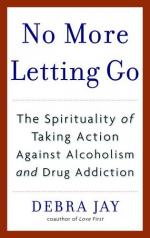|
This section contains 1,133 words (approx. 4 pages at 300 words per page) |

|
When substance abusers are arrested and appear in court, judges sometimes order the person to go through drug treatment. Court-ordered treatment is also known as coerced treatment. The theory behind court-ordered treatment is that substance abusers lack internal, or personal, motivation necessary to stop using drugs. The judge's order provides an external motivation for the person to enter treatment in order to change his or her behavior. This behavior change may reduce the number of crimes committed and the number of arrests, and it may lead to the end of drug use. In the criminal justice system, the emphasis of court-ordered treatment is getting people to remain drug-free in order to reduce crime overall.
Court-ordered treatment has its roots in the idea of community treatment. An important element of court-ordered treatment is a program called Treatment Accountability for Safer Communities...
|
This section contains 1,133 words (approx. 4 pages at 300 words per page) |

|


